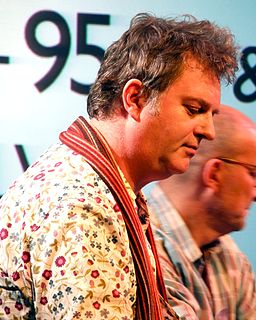A Quote by Richard M. Nixon
If some of my judgments were wrong - and some were wrong - they were made in what I believed at the time to be the best interest of the nation.
Related Quotes
Coming from a sort of very rigid European type of training to this culture which is just a little more open - a lot more open, and kind of curious, and asking different sorts of questions.Because the problem for me was that the European modernist movement in the '70s was all about right or wrong. Some things were right and you were dealing with the truth, as it were, and then some things were wrong and therefore not allowed.
I know that sounds so circular, but for you, what you were made to do, is different than what I was made to do. But instead of spending all of our time having Bible studies about what we were made to do, go do stuff and you'll figure out what you were made to do, because you'll be great at some things and you'll be terrible at others.
When I was 16 I started keeping a diary in which I recorded my disagreements with the famous philosophers. I didn't insist that they were wrong, that I was right and I had to prevail. I just agreed and disagreed with them. I thought there was a high degree of probability that I was right and some other thinkers were wrong. But I wasn't positive about it.
I was born with the wrong sign
In the wrong house
With the wrong ascendancy
I took the wrong road
That led to
The wrong tendencies
I was in the wrong place
At the wrong time
For the wrong reason
And the wrong rhyme
On the wrong day
Of the wrong week
Used the wrong method
With the wrong technique
Wrong
Wrong.
The advertising men made it clear that there were two ways of looking at ideas in a war against fascism. Those of us who were working on the project believed ideas were to be fought for; the advertising men believed they were to be sold. The audience, those at home in wartime, were not 'citizens' or 'people.' They were 'customers.'
One has to say that they [Eleanor and Franklin Roosevelt] were pioneering to some extent. They didn't know that some of the housing projects that they were putting up for the poor were going to turn into crack dens and rapists' bowers and things of that sort, which they have since become. But you can't always foresee the future. I'm sure their intentions were the best.


































